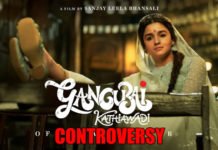I am pleased to bring to you our next contributor post by Harshil Dureja, fourth year law student, Government Law College, Mumbai.
Introduction
In today’s day and age of social media where the ‘social media influencers’ happen to have a fanbase which sometimes runs into millions, they often enjoy the status and goodwill of a celebrity thereby having a certain impact on the attitude and mindset of their viewers. These influencers are more than often seen to be experts in their niche field, may it be lifestyle, nutrition, beauty, politics, etc. It’s not uncommon to see brands approaching them to use their goodwill for promoting a good or for these content creators to give their opinions on products they use without it being sponsored. It is apparent, that a social media influencer wields the power to influence the public mind but with power also comes responsibility as observed recently in a landmark order by the Bombay High Court in Marico Limited v Abhijeet Bhansali (Notice of Motion No 1094 of 2019 in COMIP No. 596 of 2019).
Facts
In the present case Marico Pvt Ltd which is a market leader in the category of edible coconut oils selling under its mark PARACHUTE and holds 46.7% of the market share sued a YouTuber Abhijeet Bhansali who has his channel titled “Bearded Chokra” where he often uploads videos reviewing products of various manufacturers. In September 2018, he published a video titled “Is Parachute Coconut Oil 100% Pure?” where he reviewed Marico’s PARACHUTE coconut oil based on a “freeze test”. When the manufacturer came across this video, a cease and desist notice was issued by the manufacturer to take down the video as they found it to be disparaging of their product. The YouTuber in response proposed to re-make or modify and / or delete some portion and to retain some portion of the video thereby stating that he had a right to voice his opinion. Accordingly, a suit was filed by the plaintiff and he applied for urgent ad-interim reliefs praying for an injunction against the Defendant stating the content of the video was denigrating, disparaging, and misleading in nature and also made unauthorised use of the Plaintiff’s registered trademarks.
Plaintiff’s Submission
The Plaintiff submitted that the Defendant’s video was a targeted attack directed against his product, made with an attempt to attract more viewers towards his video which was in fact as a whole disparaging and denigrating in nature and caused special damage to the Plaintiff. It was also submitted that since the defendant claimed that creation and publication of such videos is his occupation and source of livelihood, the defendant’s review cannot be equated at par with any other review provided by an ordinary consumer because he intended to generate revenue from the impugned video in which apart from making denigrating statements about PARACHUTE coconut oil, the YouTuber also promoted another brand’s coconut oil and therefore it was claimed that the defendant fell well within the category of ‘commercial activities’ which restrained his freedom of speech. Furthermore, it was submitted that the defendant’s actions satisfy all ingredients to constitute disparagement, slander of goods, and malicious falsehood.
Material Relied upon
| Sr. No | Relied on | Relevance |
| 1 | Halsbury’s Laws of England Volume 8, paras 274, 275, and 277 at pages 137, 138 and 140, respectively. | To prove that the Defendant’s actions satisfy all ingredients to constitute disparagement, slander of goods, and malicious falsehood. |
| 2 | Hindustan Unilever Limited vs. Gujarat Co-operative Milk Marketing Federation Ltd & Ors | To point out that there is a difference between an action for defamation and an action for disparagement, slander of goods and malicious falsehood and to further establish that the defences for both are also different. |
| 3 | Ratanlal Dhirajlal on Law of Torts 22nd Edition 1992 (Reprint 1995) in Chapter XII page 234.
|
On the aspect of special damage this was relied upon by the plaintiff |
| 4 | Dabur India Ltd v. Colortek Meghalaya Pvt. Ltd
|
In support of the argument that special damage does not mean special in terms of quantum but special in terms of the nature of the damage. |
Defendant’s Submission
It was submitted by the defendant that he had acted bona fide to educate his viewers and that the Defendant’s offer to delete some portions of his video in his reply to the Plaintiff’s cease and desist notice, was a concession or an attempt made in good faith to finally settle the matter and cannot be treated as an admission of any wrongdoing.
He further submitted that though he compared the PARACHUTE coconut oil with another brand’s coconut oil and claimed it to be better, he did not receive any money for any such brand promotion and that it was purely based on the YouTuber’s bonafide opinion.
The defendant also denied the tort of disparagement of goods/slander of goods stating that none of the ingredients required were fulfilled. He also denied the plaintiff’s claim for special damage on the ground that as the viewership of the defendant’s video was considerably less and also said that the viewers had viewed the Defendant’s video with healthy skepticism considering there were both likes and dislikes on the video. The defendant also relied on various judgments to substantiate the fact that the defendant had a constitutional right to express his opinions freely.
Cases Relied upon
| Sr. No | Cases | Relevance |
| 1 | Dilip Kumar vs. New India Assurance
|
To bring to the notice of the court the difference between a “concession” made in the course of good faith negotiations and an “admission”. |
| 2 | Management of the Consolidated Cofee Estates vs. Workmen
|
To submit that a concession made in the course of trying to settle a matter can never be considered to be an admission.
|
| 3 | Tata Sons Ltd. vs. Greenpeace International & Anr
|
To draw an analogy with this case and submit that the defendant’s statement “a dried or rotten coconut” was a hyperbole / exaggeration and was not meant to be taken literally. |
| 4 | -Hindustan Unilever vs. Gujarat Cooperative
-Gujarat Cooperative Milk Marketing Federation Ltd. vs. Hindustan Unilever Ltd. -Hindustan Unilever Ltd. vs. Cavincare Pvt. Ltd |
To submit that courts in India have held that the tort of disparagement of goods / slander of goods applies only to rival manufacturers / traders / competitors of the Plaintiff and the defendant is neither a trader / manufacturer nor a rival of the Plaintiffs goods. |
| 5 | Dr. Yashwant Trivedi vs. Indian Express Newspapers
|
To submit that the law in India is that where a Defendant merely takes the plea of justification and “mentions” evidence on which he is going to rely upon, an interim injunction must be refused. |
| 6 | R. Rajagopal vs. State of Tamil Nadu | To bring to the attention of the court that though prior restraints are legal in India, they can only be imposed if the statute itself clearly prescribes a prior restraint. |
| 7 | Bonnard vs. Perryman
|
To state that an interim injunction should not be awarded unless defence of justification by the Defendant was certain to fail at trial level |
| 8 | Shreya Singhal vs. Union of India | To point out that “Mere discussion or even advocacy of a particular cause howsoever unpopular is at the heart of Article 19(1)(a). It is only when such discussion or advocacy reaches the level of incitement that Article 19(2) kicks in.” |
Court’s Decision
Disparagement v/s Defamation
An interesting question arose during the proceedings when the defendant, while expressing that he did not disparage the Plaintiff’s PARACHUTE COCONUT OIL sought to rely on the law of defamation in a suit for slander of goods and malicious prosecution. The court explicitly noted that the legal requirements of a personal defamation case and that of malicious falsehood and slander of goods are distinct and different. For this it relied heavily upon the relevant paras of Halsbury’s Laws of England Volume 8 and Hindustan Unilever Limited vs. Gujarat Co-operative Milk Marketing Federation Ltd & Ors. The court also clarified that a suit for defamation stands on a slightly different footing than a suit for slander of goods and malicious falsehood and that the defences for both are also different. The court was of the view that the three ingredients required to establish a case for slander of goods, malicious falsehood and disparagement i.e. (i) the statement must be false; (ii) the statement must have been made with malice; and (iii) the Plaintiff must have suffered special damage, were all satisfied.
(i) The statement must be false
The court held that falsehood on the part of the Defendant was evident from the fact that the defendant only compared the two products based on their color in liquid and frozen form and failed to conduct any independent tests to prove that there is a significant variance in the nutritional values of the products to conclude that the Plaintiff’s PARACHUTE COCONUT OIL is of an inferior quality. Furthermore, it was observed by the court that the comparison was rather ambiguous because the products being compared were inherently different.
(ii) The statement must have been made with malice
The court was of the view that the statements made by Defendant were malicious or reckless due to the fact that the defendant failed to do proper research and exercise caution before making the impugned video. The court was of the opinion that the Defendant had no reason to believe that the statements he was making were the truth since there was no material produced in respect of the PARACHUTE COCONUT OIL to demonstrate that such a belief was even possible and that the statements had been made with recklessness and without caring whether they were true or false.
(iii) The Plaintiff must have suffered special damage
While deciding the issue of whether special damages were suffered by the Plaintiff, the court answered in affirmative while observing that it was safe to assume that the 2500 persons who had liked the video learned something from the video and hence the impact of the Impugned Video upon the reputation of the Plaintiff’s PARACHUTE COCONUT OIL and the damage caused to the Plaintiff cannot be underestimated.
Freedom of speech and expression
As regards to the very important question of freedom of speech and expression, the court opined that because the Defendant was regularly creating and publishing content on his YouTube channel “Bearded Chokra” which is his full-time occupation and only source of livelihood, the publication of the Impugned Video was thus a commercial activity and the Defendant’s “opinion” in this view amounted to commercial speech. Furthermore, it was observed that even though the defendant is an individual, he cannot assert a fundamental right to abuse the Plaintiff’s product by making false or malicious allegations against it to gain monetary benefit or discredit someone else’s products under the garb of educating the public.
Appeal before the Division Bench
On 29th January, the division bench of Chief Justice Pradeep Nandrajog and Justice Bharati Dangre admitted an appeal by Abhijeet Bhansali in the above matter. While hearing the appeal, both the parties were asked “to sit across the table and have a discussion” on the video so as to settle the matter amicably.
The Bench observed, “The existing law on defamation says no one can make a false statement of a fact. An opinion cannot be held as a fact irrespective of how bad it (opinion) is. Freedom of speech is always put on a higher pedestal than reputation even though both are fundamental rights.”
It was also noted that “If society is reposing trust in what they (influencers) say then that trust comes with an obligation. The problem with the internet and social media nowadays is there is so much information that people mistake it for knowledge.”
Analysis
This matter is the first of its kind where the responsibilities and the impact of social media influencers is recognised. With the exodus on the social media platforms certain regulations and guidelines with respect to the content created on these platforms is a welcome step. But at the same time what needs to be understood is that the freedom of speech of a content creator on these platforms must not be affected at the hands of big corporations and entities with deep pockets else it would result in YouTube and other social media platforms going down the polarised path of the main stream media and television. The inherent difference between the two must be maintained with social media being a free space where anyone can voice their opinion without the threat of lengthy and expensive lawsuits by big corporate entities. At the same time social media influencers must understand that the dissemination of information by them comes with a responsibility to not misuse their power or mislead the public and to ensure that there is certain degree of truthfulness in their statements.
The matter is posted to be heard on 5th February and it will be interesting to see how the balance is maintained.


















